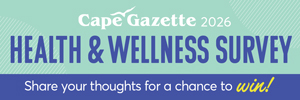If you’re like most of us, you started off the year with resolutions firmly in hand, but just a few weeks in, may have already started to question your determination.
Whether your resolutions revolve around body image or getting a new job, the drop-off rate in the first week alone is steep – as high as 60 percent, according to research. The final success rate is even poorer, with data from the University of Scranton revealing that 45 percent of Americans regularly make new year’s resolutions, but only 8 percent actually keep them.
There are effective ways to break the cycle, however, which involve reframing your resolutions. In so doing, you may well achieve some of your most profound life goals in 2019.
Some strategies to consider:
Exercise, weight loss and diet are the most common targets for improvement, but look beyond the superficial to make resolutions that will have a real impact on your health and well-being. This can be as simple, but still challenging, as deciding to get a restful eight hours of sleep each night, or take 15 minutes a day to meditate or connect with nature, engage in mind-body activities like tai chi and yoga, or spend more time with your family at home by disconnecting from phones and tablets when you are all together.
Put your plan in writing, and be as descriptive as possible. Vague goals such as “eat healthy, get fit” generate equally vague results, so make sure your plan includes details. If you plan to eat healthy, explain your process, such as a low-calorie, low-carb or balanced-diet approach, and meal plans; likewise for fitness, write down how often, how much and what kind of exercise will work for you.
Set milestones and small, manageable targets to help you track progress. Take it one step at a time - it’s easier to visualize losing one to two pounds a month than 20 pounds in six months. Achieving checkpoints along the way will build your confidence and help move you further toward your ultimate goal.
Single out one goal for success in 2019. Many people try to tackle multiple resolutions simultaneously, and almost always crash and fail. Identify the one most important to you, and work at it slowly. When you have achieved it, build on the success and take on new goals.
Expect setbacks and failures as part of the plan. It won’t always be smooth sailing, but don’t be discouraged. Learn from your mistakes and try not to make them again.
Use "if-then" planning, also known as “implementation intentions.” The strategy of predicting obstacles and devising ways to overcome them prepares you to make the right choices when challenges inevitably occur. Numerous studies support the use of if-then thinking to significantly increase your chances of success over the long term.
Gather a support team. A team approach works well with resolutions to diet, exercise or stop smoking. Having your own group of personal boosters is of enormous help when you’re feeling down or your resolve is weakening.
Go public with your plan. This may not work for everyone, especially if you are likely to become embarrassed about possibly failing in a very open way. However, if you are the type that is energized by a public challenge, you’ll achieve better results.
Whatever your goal is this year, set it, plan it, share it and stick with it … and remember, it’s never too late to start! As writer C.S. Lewis said, “You are never too old to set another goal or to dream a new dream.”
Top new year’s resolutions:
Eat healthier (37 percent)
Get more exercise (37 percent)
Save (more) money (37 percent)
Focus on self-care, e.g. get more sleep (24 percent)
Read more (18 percent)
Make new friends (15 percent)
Learn a new skill (15 percent)
Get a new job (14 percent)
Take up a new hobby (13 percent)
Do not plan to make any new year’s resolutions: 32 percent
Source: www.YouGov.com
Uday Jani, MD, a board-certified internist, is in private practice at Shore View Personal Care. He completed a two-year integrative medicine fellowship in 2012 at the University of Arizona under Dr. Andrew Weil, the renowned founder of integrative medicine. For more information, call 302-684-0990 or go to www.udayjanimd.com.














.jpg)






































